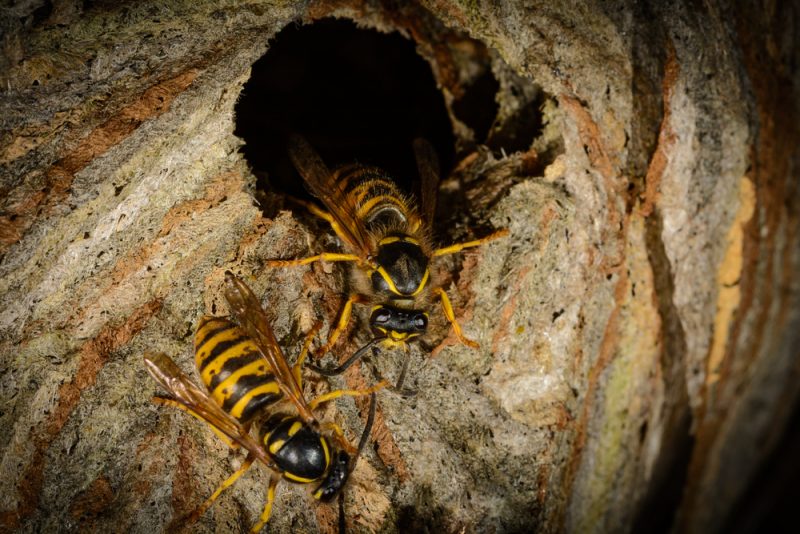Wasps can become a nuisance very quickly, especially in the summer months where you are wanting to spend more time outside entertaining friends and family. They seem to be attracted to areas where we are, as they look for food and water sources. When you notice that you have a wasp problem it is often a bit of a quandary trying to work out what to do to fix it. There are a range of both natural and chemical methods to control wasps but it is highly debated which work best. Wasp control can be a dangerous business, which is why it is often best to leave it to experts like Endeavour Property Services who offer pest control throughout Auckland. But there are some easy tips you can take on board to make sure you are safer when dealing with a wasp problem.

DO
- Identify the source – It is important to try to identify the source of your wasp infestation, or the location of the nest. As in order to remove the wasps you need to deal with the masses, not just kill individual wasps.
- Keep children and pets away – It is important when dealing with wasps and pest control to always keep pets and children away. Not only because of the painful stings that wasps can cause. But also due to the toxicity of the chemicals used for pest control.
- Wear protective clothing – When dealing with wasps it is always important to protect yourself by wearing the correct clothing. IT is recommended that you wear long sleeves, covered in shoes and gloves to protect you from their painful skills.
- Carry out pest control at night – When dealing with wasps it is always best to work at night, as this is when they are least active and more likely to all be contained in the nest. This is not only for your safety but also to make the job easier as they are all in one place.
- Have a first aid kid ready – Wasps are extremely unpredictable creatures so it is important to always have a first aid kit ready when undertaking wasps pest control.
- Identify what sort of wasps you are dealing with – It is important to identify what species of wasp you are dealing with as this may change the wasp control you need to carry out.
- Stay calm – When undertaking wasp control it is important to always stay calm. Asif you are scared of nervous you are more likely to make a mistake and get strung. If you do not feel comfortable undertaking DIY wasp control it is a much better and safer idea to leave the job to the trained professionals.
- Avoid attracting wasps – When you are outdoors, be sure to dress for the occasion by avoiding bright colours that might be attractive to insects. Also make sure that your homes environment is not attracting wasps by removing any water sources and sweet food or meat left lying around.
DON’T
- Undertake wasp control if you have an allergy – It is important to never undertake DIY wasp control if you suffer from a bee or wasp allergy. As you are at a high risk of being stung which is very dangerous to individuals with allergies. It is also important to consider that if you have never been stung before you could very well be allergic. So proceed with caution.
- Don’t try to knock down nest – Although a wasp nest may look easy to remove it is important to proceed very carefully when dealing with nest as once angry wasps can be very nasty to deal with. So, do not knock down a wasp’s nest as you will have no way to dispose of it. Wasp nest removal is better left to the professionals.
- Use over the recommended amount of pesticides – When it comes to pesticides people seem to always think more is better. But it is important to follow the directions on the pesticide bottle, as by using too much of a product you could damage the health of you and your family. As these pesticides are very concentrated, so by using too much you will not achieve better results. You will just be wasting money.

